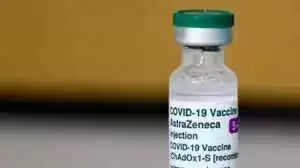AstraZeneca Withdraws COVID Vaccine Worldwide
AstraZeneca: According to the source, 51 cases have been brought to the High Court by people affected by the vaccine
AstraZeneca has announced the withdrawal of the Oxford-AstraZeneca COVID-19 vaccine globally. This decision comes weeks after acknowledging rare side effects associated with the vaccine.
Commercial Reasons Behind Withdrawal
AstraZeneca decided to stop selling their vaccine everywhere because newer vaccines that can handle new variants better are available now. They mentioned commercial reasons for this decision.
EU Market Exclusion
AstraZeneca chose to stop selling its vaccine in the European Union. They asked to cancel their permission to sell it there on March 5, and now it's official.
Legal Battles and Safety Concerns
AstraZeneca faces a class-action lawsuit alleging its vaccine caused severe adverse effects, including Thrombosis with Thrombocytopenia Syndrome (TTS), characterized by blood clots and low platelet counts. However, the company maintains that the withdrawal decision is unrelated to ongoing legal proceedings or safety concerns.
Origins and Manufacturing
Developed in collaboration with the University of Oxford, the AZD1222 vaccine, also known as Covishield in certain regions, was manufactured and supplied by AstraZeneca. Serum Institute of India (SII) produced the vaccine under license.
Rare Side Effects Acknowledgment
AstraZeneca admitted in a legal filing to the High Court in February that its vaccine can, in rare instances, cause TTS. This admission follows earlier denials of claims suggesting vaccine defects or exaggerated efficacy.
51 cases have been brought to the High Court by people affected by the vaccine, along with families who lost loved ones. They are asking for around £100 million in damages. This shows how complicated it can be to figure out who's responsible when it comes to vaccine safety.
As AstraZeneca's vaccine is phased out, attention shifts to the evolving landscape of COVID-19 vaccination efforts worldwide.
To join us on Facebook Click Here and Subscribe to UdaipurTimes Broadcast channels on GoogleNews | Telegram | Signal



